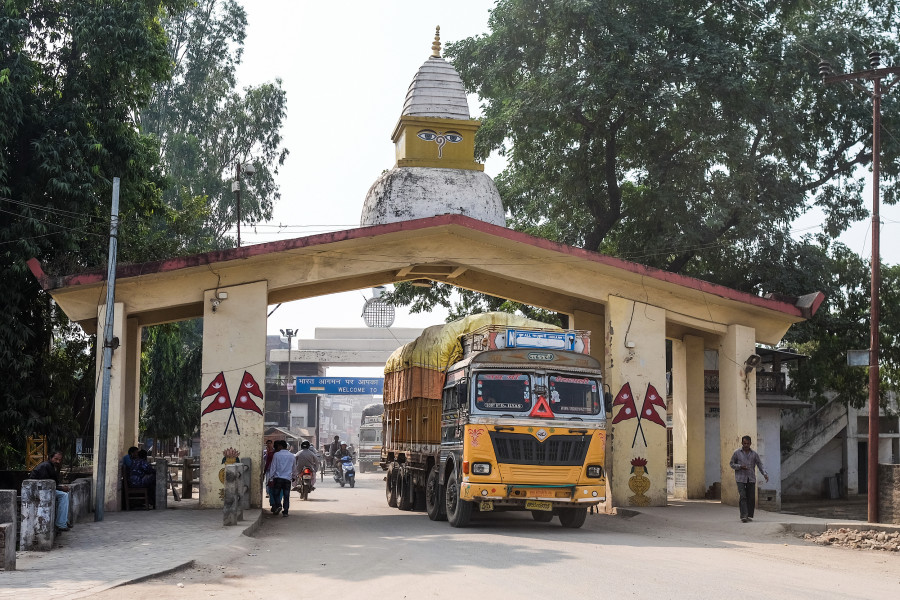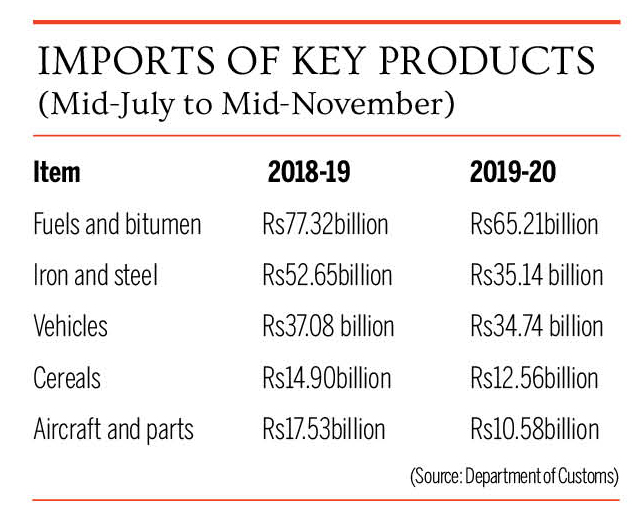Money
Trade deficit down 8.9 percent to Rs414 billion on plunging imports
Imports fall for fourth straight month, but economists say this is no cause for celebration.
Sangam Prasain
Nepal’s trade deficit fell 8.9 percent year-on-year to Rs414 billion in the first four months of the fiscal year, helped by a sharp drop in imports of petroleum products, iron and steel, aircraft and aircraft parts and vehicles, according to the latest trade statistics.
This is the fourth consecutive month that imports have recorded a drop, resulting in a reduction in the trade deficit.
But economists say that there is no cause for celebration as shrinking imports of steel and iron, fuel and aircraft merely indicate sluggish construction activities and a slowdown in business spending.
The statistics of the Department of Customs show that imports dropped by 6.92 percent to Rs450.29 billion between mid-July and mid-November of the fiscal year. According to the department, exports swelled by 23.90 percent year-on-year to Rs36.27 billion.
Total foreign trade amounted to Rs486.57 billion in the first four months of the fiscal year.
Economist Posh Raj Pandey said that a sharp drop in the import of iron and steel does not augur well for the economy as it shows that construction activities in the country are slowing down. “The government may be rejoicing at the drop in imports, but that was not due to import substitution,” he said.
Imports of iron and steel, the key construction materials, dropped sharply by 33 percent to Rs52.65 billion in the first four months. Imports of fuel and bitumen also fell by more than 15 percent during the review period. Nepal imported fuel and bitumen worth Rs65.21 billion in the first four months.
Another key reason behind the plunge in imports is reduced imports of aircraft and parts this year. According to customs data, imports of aircraft and parts fell steeply by 39 percent to Rs10.68 billion. In the last fiscal year, domestic airlines bought at least a dozen aircraft.
Automobile imports also dropped by more than 6 percent to Rs34.74 billion. Vehicle dealers say they are seeing a decrease in demand, particularly due to the government’s unfriendly policy towards auto imports.
The central bank has fixed the down payment for vehicle loans at 50 percent of the car value. In the past, the down payment on a car was as low as 10 percent.
According to the central bank, imports of vehicles and parts decreased by 18 percent during the first quarter.
Sunil Rijal, general secretary of NADA Automobiles Association of Nepal, said in a recent interview to the Post that the government’s policy of discouraging vehicle imports and decreasing remittance inflow had resulted in a decline in sales.
“While the government is happy that imports are falling every month, it also indicates falling consumer confidence and a slowdown in the economy,” said Pandey. He added that the growth in exports was a result of increased palm oil shipments which Nepal does not produce.
“Palm oil is imported and then re-exported to India as traders are cashing in on the tariff difference between Nepal and India.”





 9.7°C Kathmandu
9.7°C Kathmandu















